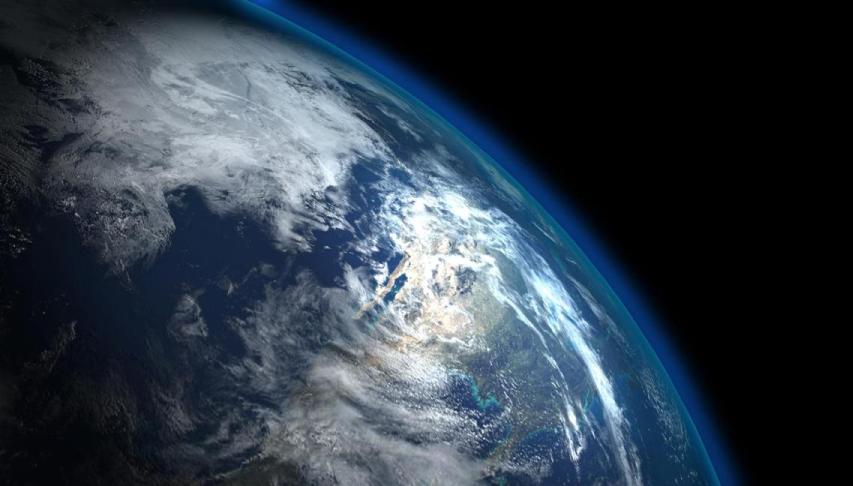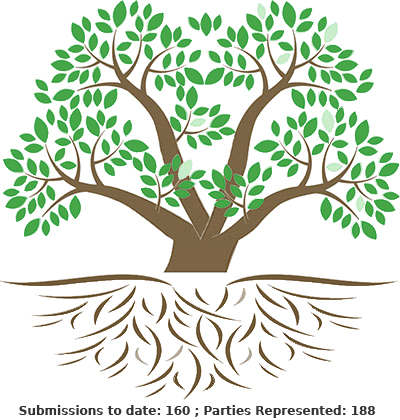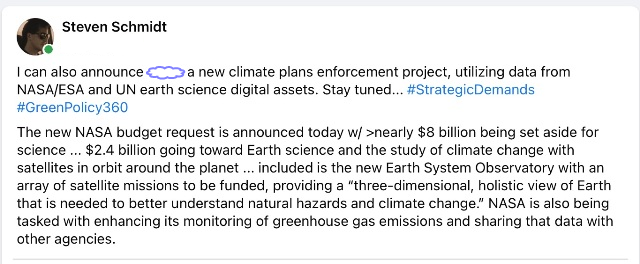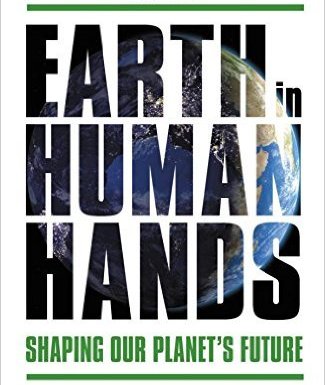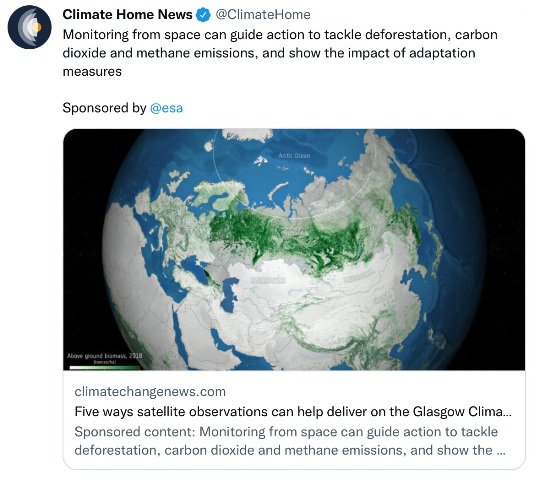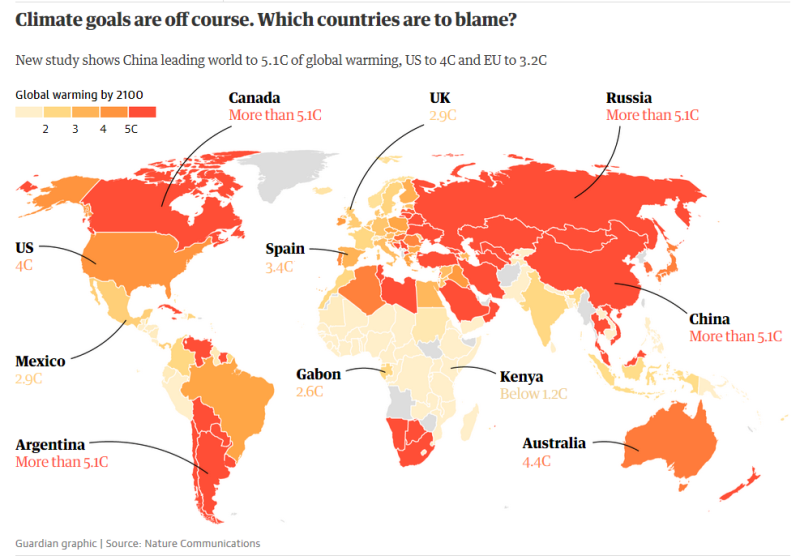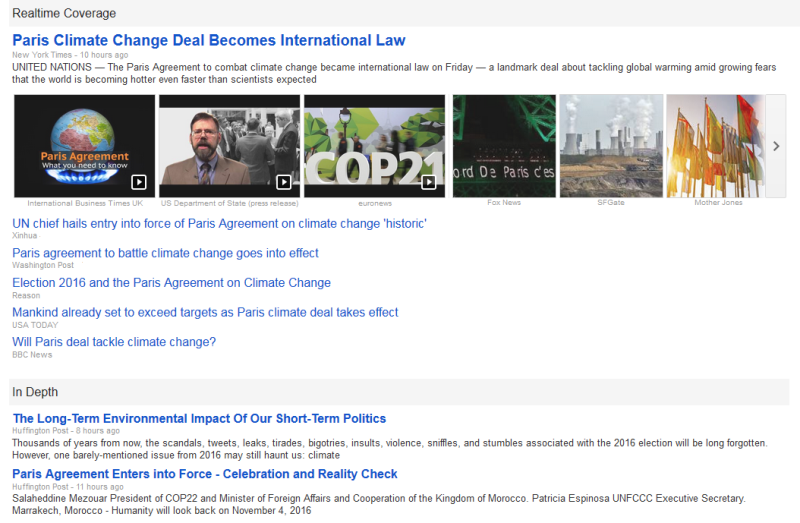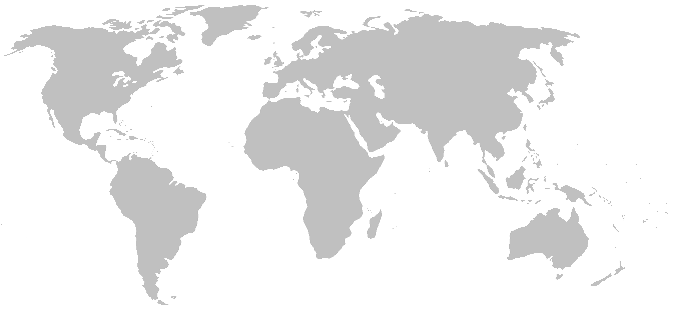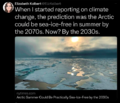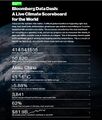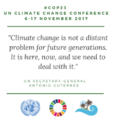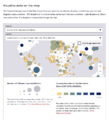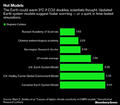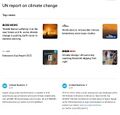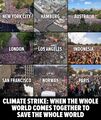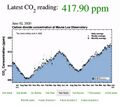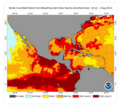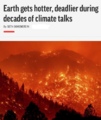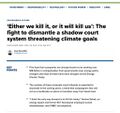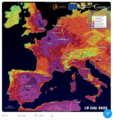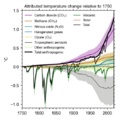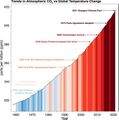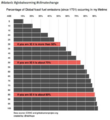Category:INDC
Pressuring Nations to Step Up, Cooperate, and Act Now on Climate Change
From INDCs, Intended Nationally Determined Contributions (i.e., National Climate Plans) to...
Nationally Determined Contributions (NDCs)
- Measuring and Monitoring Climate Plans & Climate Actions
- 'Talking the Talk and Walking the Walk'
Climate science 'Insights Report' delivered to the 28th International Climate Summit
December, 2023 in the UAE
The 1.5-degree reduction target has become a rallying point for nations attending the COP28 climate talks, despite rising certainty among scientists that the world will spill over that threshold, potentially within a decade. Temperatures have already risen between 1.1 and 1.3 degrees.
It may be possible to bring global temperatures back down again, using still-unproven technological means to draw carbon dioxide out of the atmosphere. But at least some overshoot is probably unavoidable, scientists said in the new report to the U.N.
The looming shadow of overshoot is one of 10 stark warnings the researchers presented Sunday in an annual report on top climate science insights from the past year. Launched in 2017, the series is coordinated by scientific organizations Future Earth and Earth League, alongside the World Climate Research Programme, whose scientific work helps inform national climate commitments worldwide. The report is presented each year to the U.N. during its annual climate conference.
This year’s report includes a variety of findings.
Mountain glaciers are swiftly shrinking. Natural landscapes, like forests and wetlands, may soak up less carbon dioxide as the planet warms, causing more pollution to linger in the atmosphere. Compound climate events — multiple extreme weather disasters happening at the same time or in rapid succession — are a growing threat.
The report also includes insights on the links between climate change and biodiversity loss, the role that food systems can play in reducing carbon emissions, the plight of global populations that lack resources to relocate in the face of worsening climate impacts, and the importance of just and equitable climate adaptation efforts.
The findings on the 1.5-degree target are among its starkest conclusions.
Nations have not reduced greenhouse gas emissions quickly enough to stay on track, the report finds. The world can emit only a certain amount of carbon before the 1.5-degree target slips out of reach, and recent studies suggest that threshold will arrive in about six years if humans keep burning carbon at their current rates...
🌎
Visit GreenPolicy360's "Climate Plans Enforcement"
- "Turning National Climate Pledges & Promises into Reality"
GreenPolicy2021 initiative for Legally Enforcing National Climate Plans
- "Climate Plans Enforcement" (2021-2023)
- "Turning National Climate Pledges & Promises into Reality"
🌎
GreenPolicy360:
Now is the time to go beyond "intended" climate plans actions. Intended NDCs and now the newly submitted NDCs must become measurable and powerful reality.
GreenPolicy360 is aimed at 'turning promises into reality' with our Climate Plans Enforcement project. We ask how best can governments and business, communities and all of us act to accelerate national climate action promises that came out of the international Summits in Paris (2015) and Glasgow (2021). How can we gain momentum and speed to scale up climate solutions to deal with the great challenge of our times... We believe identifying and sharing 'green best practices', those climate solutions that work best, and can be multiplied across communities and nations with their multiple governance systems, is one of the most practical ways to get to work making a positive difference.
Climate plans enforcement, laws and rules, engineering and smart design, measuring and monitoring emissions and dealing with 'hot spots' all have a place today, right now, in the tool kits of the nations of the world.
🌎
GreenPolicy360: The INDC as 'intended' national climate action plans submitted in 2015 at the global climate summit in Paris formed a basis of cooperative international action. The intentions of countries are one thing, action is another. Words must produce results. The intended national determined contributions (INDCs) will become NDCs at the global summit in Glasgow, yet NDCs need to be enforced. It is time for legal actions, and online sharing of successful legal practices.... We call this type of multiplier based on models and templates that are open access and 'shareable' an extension of our multi-decade focus on #GreenBestPractices, where we act to turn ripples of action into waves of results.
Let's follow some of the legal enforcement waves...
Climate News from the Frontlines
The Wave: Climate Litigation and Climate Justice
by Isabella Kaminski
'The Wave is a newsletter about climate litigation and climate justice. It covers lawsuits that seek to further climate action or delay it around the world, profiles the people who bring them, analyses litigation trends, and examines their impacts and limitations.
(Supported by the Foundation for International Law for the Environment)
2023 will be a watershed year for climate litigation
Over the past twelve months, courts from Indonesia to Australia have made ground-breaking rulings that blocked polluting power plants and denounced the human rights violations of the climate crisis. But this year could be even more important, with hearings and judgments across the world poised to throw light on the worst perpetrators, give victims a voice and force recalcitrant governments and companies into action...
(Upcoming legal cases/lawsuits and actions include:)
A (Children's Trust) case go to trial when a group of children and young people between the ages of five and 21 square off against Montana.
Over two weeks in June, they will argue that the US state is failing to protect their constitutional rights, including the right to a healthy and clean environment, by supporting an energy system driven by fossil fuels. They will also say climate change is degrading vital resources such as rivers, lakes, fish and wildlife which are held in trust for the public.
“Never before has a climate change trial of this magnitude happened,” says Andrea Rodgers, senior litigation attorney with Our Children’s Trust, which is behind the case. “The court will be deciding the constitutionality of an energy policy that promotes fossil fuels, as well as a state law that allows agencies to ignore the impacts of climate change in their decision making.”
(Andrea Rogers says) the watershed trial would be watched around the world and “is set to influence the trajectory of climate change litigation going forward”.
~ Current Status:
~ The plaintiffs and their attorneys are continuing to gather evidence and prepare for trial. This historic trial - the first children’s climate trial in U.S. history - will begin on Monday, June 12, 2023, at the First Judicial District Court in Helena, Montana, and will conclude Friday, June 23, 2023.
_____________________________
(Excerpts from the Wave Newsletter)
In Canada, a ruling is expected this year in the country’s first climate lawsuit to have had its day in court. Seven young people, fronted by now-15-year-old Sophia Mathur, made history last autumn when they challenged the Ontario government’s rollback of its 2030 greenhouse gas emissions reduction target.
In Mexico, Greenpeace and groups of young people have led several important court cases challenging the slow pace of the country’s clean energy transition. In one, the Supreme Court is due to decide whether they have standing to bring their case.
In Latin America, which has pioneered innovative approaches in climate litigation, legal action will increase and improve next year, says Javier Davalos González, senior lawyer at the Interamerican Association for Environmental Defense (AIDA).
In South Africa - a hotspot for climate litigation within the African continent - a new set of lawsuits (are scheduled to be) filed this year, as well as decisions (rendered) in several important cases. One, a constitutional challenge to the country’s plan to build new coal-fired power stations during the climate crisis, was heard in November 2022. A ruling is expected soon.
In Uganda, its High Court may conclude a case filed more than a decade ago by a group of young people, who argue their government is failing to preserve a healthy atmosphere as a public resource for both present and future generations.
In Australia, a crucible of successful climate litigation, a class action case (is expected to be heard) in June led by Torres Strait islanders Pabai Pabai and Paul Kabai, who argue the state should cut its emissions by 74% by 2030 to save their islands from rising sea levels and other devastating climate impacts.
In New Zealand, the Court of Appeal is expected to hear Northland iwi leader Mike Smith’s appeal against the High Court striking down his claim against the New Zealand government, in which he sought a declaration that it had breached its climate obligations.
In South Korea a decision is expected soon in a case filed by a youth group claiming the government of South Korea’s inaction on climate change infringes their constitutional rights.
In China, the Chinese courts... have shown a growing appetite for climate litigation and action could be taken this year against provincial governments or cities.
On the other side of the world, the European Court of Human Rights has several climate cases on its books, all of which argue that government inaction in limiting dangerous global warming risks basic human rights such as health and life.
In Switzerland, at a public climate hearing in March this year, a group of older Swiss women known as the KlimaSeniorinnen Schweiz will say they are particularly vulnerable to climate change because their health is at risk from heat waves. They will get to make their arguments in front of the court’s Grand Chamber, which is reserved for the most serious cases, and will do so supported by two prominent British lawyers - Jessica Simor and Marc Willers... Although this is a European case, it will cause international ripples. Kelly Matheson, deputy director of global climate litigation of Our Children’s Trust, which is advising on climate science in three cases before the court, said the decision by the court’s 17 judges would have a “profound effect on courts throughout the world as their finding will inform and influence the decision made in other judicial processes”.
At a national level, campaigners will be asking judges to make climate orders against the governments of Italy, Belgium and France, following a string of successful similar European cases.
Sarah Mead, co-director of the Climate Litigation Network, says these cases are crucial because a positive outcome can enhance government accountability, particularly in OECD countries with significant historical responsibilities and more capacity to cut their emissions. They also help “narrow the global emissions gap and further foster citizens' mobilisation on the need for stronger climate action”.
Mead adds that the Climate Trials campaign, launched last year to threaten governments with legal action if they did not act, will ramp up.
- (Grata Fund) https://www.gratafund.org.au/climate_trials
- (International Bar Association) https://www.ibanet.org/climate-trials-legal-challenges-view-from-France
At the UN, a vote (will be held) on a key resolution about human rights and climate change. If passed, the International Court of Justice will have to provide an advisory opinion on the obligations of states under international law to protect the rights of present and future generations against the adverse effects of climate change. This work has been led by vulnerable island state Vanuatu, and now has support from governments all around the world.
Private sector
It’s not just governments in the firing line; climate litigation against the private sector will continue to grow.
In the US, there might finally be an answer to the question of which courts will handle the plethora of lawsuits against the fossil fuel industry. Companies have been pushing to have these cases heard at the federal level, where they believe they stand more chance of success, but judges have consistently ruled against them.
The Supreme Court has been asked to intervene, and if it takes up the case next year it may finally draw a line under the issue.
Richard Wiles, president of the Center for Climate Integrity, says that if the Supreme Court agrees with federal judges it would remove one of the last procedural hurdles and mean cases can start to move on to talk about the actual issues at stake - were the actions of fossil fuel companies reasonable and what responsibility do they bear?
Following pre-Christmas wins against billionaire Clive Palmer’s attempt to build a huge thermal coal mine and Santos $4.7 billion Barossa offshore gas project, Australian climate campaigners are now on tenterhooks awaiting a decision on their challenge to Woodside’s $16bn Scarborough gas project because of the impact of its greenhouse gas emissions on the Great Barrier Reef.
In another case fronted by Northland iwi leader Smith, New Zealand’s Supreme Court will decide whether a challenge against seven of the country’s largest polluters and fossil fuel producers, claiming injury from their ongoing emissions, can go to trial.
In Germany, there is likely to be a ruling in a landmark lawsuit brought by Peruvian farmer Saúl Luciano Lliuya against RWE for contributing to climate change. The court sent judges to Peru last year to determine the level of damage, and its decision will be very closely watched by corporations of all stripes. Germany is also home to a group of cases filed against car manufacturers. One claim against Mercedes-Benz was rejected last year, but others could proceed further.
In Brazil, following a landmark ruling last year that recognised the Paris Agreement as a human rights treaty, Brazil’s courts are expected to rule on a case brought against Brazil's national development bank (BNDES) and its investment arm BNDESPar by Brazilian NGO Conectas Direitos Humanos which wants them to develop a greenhouse gas emissions reduction plan to guide their investments. It’s the first case of its kind against a development bank anywhere in the world, and could have significant repercussions on wider climate finance.
Several lawsuits have been filed to try to block TotalEnergies’ controversial East African Crude Oil Pipeline (EACOP). One brought by civil society organisations from Uganda and Tanzania at the East African Court of Justice has been bogged down by jurisdictional arguments. But another filed under a novel ‘duty of vigilance’ law in France had a hearing in December and there could potentially be a ruling this year.
In South Africa, the courts will decide whether Shell was legally given exploration rights off the ecologically sensitive Wild Coast, after Shell appealed an order to halt seismic testing.
Next year might also see movement in Shell’s appeal against a landmark ruling by a Dutch court, which in 2021 ordered it to cut its carbon emissions by 45% by 2030. Although the court was clear that Shell must begin complying with the ruling straight away, Milieudefensie (the Dutch arm of Friends of the Earth), which brought the case, does not think it is doing enough to meet the target. In the meantime, Shell has moved its headquarters from the Netherlands to the UK. Shell’s directors too will be under an unprecedented level of scrutiny this year. ClientEarth sent a letter to the company’s board in 2022, warning that it was prepared to start a legal challenge in the UK if Shell does not handle its climate risks better. If ClientEarth follows through, this would be the first derivative action anywhere against a board for failing to consider efforts towards achieving net zero.
Re: Greenwashing - a fast-growing area of climate litigation - expect to hear more on allegations that Dutch airline KLM’s adverts promoting the company's sustainability initiative are misleading and claims that gas company Santos breached Australian corporate and consumer law over clean energy and net zero plans.
Whatever happens in those cases, expect to see many more lawsuits filed this year, as well as more creative uses of the law. These will be filed against governments of all levels, based on the most cutting-edge science, as well as against companies.
The financial sector, in particular, is likely to be a big target, and there will be continuing waves of related litigation targeting plastics and biodiversity loss. This year is “shaping up to be a really important year for climate litigation,” says Mead.
🌎
2022 was a big year for climate action in the courts
The past year saw major developments in accountability cases against oil companies and national governments around the world, as well as setbacks for several high-profile fossil fuel projects.
It was another busy year in the courts for climate-related cases. From challenges to fossil fuel and petrochemical expansion to climate lawsuits against Big Oil and national governments, there were notable victories for climate action and accountability in 2022. There were also some setbacks, for instance, the U.S. Supreme Court’s limitation of the U.S. EPA’s authority to regulate greenhouse gas emissions. Here are some of the highlights.
Read the Complete article by Dana Drugmand at DeSmog, Dec. 29, 2022)
🌎
Boost climate action or we'll see you court, activists tell governments
September 27, 2022
Paris (AFP) – Governments around the world must scale up climate action "or face further legal action", an open letter from campaign groups warned Tuesday, as battles over policies to cut emissions and protect the environment are increasingly fought in the courts.
From legal efforts to steer governments to do more to curb fossil fuel pollution, to court action over companies' misleading green claims, the number, scope and ambitions of climate litigation is expanding, say experts, with an increasing number of cases are being launched against governments...
Research from the Grantham Research Institute at the London School of Economics this year has found that of the 2,000 or so climate legal cases filed since 1986, almost a quarter were started since the beginning of 2020.
🌎
The climate trials of the 21st century have begun
By Kurt Cobb - (2016)
We now have underway the first climate trials (or various stages of them) of the 21st century. The overall question in these trials is actually straightforward: Do governments and corporations have an obligation to protect the habitability of the Earth’s climate for human populations?
Let’s start with government. The first trial (in the United States) was not actually that recent. In 1999 a group of environmental organizations petitioned the U.S. Environmental Protection Agency (EPA) to regulate greenhouse gases. In 2003 the EPA denied the petition. Several states then joined a legal appeal which reached the U.S. Supreme Court. The court decided in 2007 that, in fact, the EPA did have the authority and the obligation to consider seriously how to regulate greenhouse gases.
The agency then offered a regulation plan which was challenged in court. In 2014 the Supreme Court found the EPA plan acceptable with a few minor tweaks.
This kind of legal battle is really a plain vanilla regulatory fight about what a particular government agency can and should do under existing laws. But a more sweeping type of legal battle is now unfolding, one that invokes a much broader obligation of the government to make the climate safe for future generations.
In Washington state a group of young people between the ages of 12 and 16 sued the state to force it to implement a greenhouse gas emissions reduction plan. The state has since come up with a plan that the attorneys for the children say is inadequate. They are in court once again.
Washington isn’t the only state feeling the judicial heat. A group called Our Children’s Trust is pursuing legal action in several states (including the case cited above) and in federal court. The federal case is proceeding to trial after the government failed to get it dismissed. The aim of the federal plaintiffs is to seek broader protection in policies across the government, not in just one agency...
Some 80 of these cases have been filed against national or subnational governments since 2005, the research found, with a record number of 30 new cases submitted in 2021.
🌎
GreenPolicy360:
Climate Plans Enforcement - Resources
A Story of Intended National Climate Actions (INDCs) and Determined Actions (NDCs)
Will we move nation-by-nation and internationally with enough speed and scope in our climate actions to protect and preserve an intergenerationally thriving planet?
Intended and Nationally Determined Climate Goals
From the Paris Climate Summit's INDCs to the Glasgow Climate Summit's NDCs
Nationally Determined Contributions (NDC) Tracking
Measuring and Monitoring Climate Plans & Climate Actions
'Talking the Talk and/or Walking the Walk'
- https://www.carbonbrief.org/paris-2015-tracking-country-climate-pledges (initial INDCs / 2015)
Climate Plans Enforcement - Resources
2022
Via GreenPolicy360
🌎
Each of us, each of our nations, can make a positive difference
- ······························································
National Climate Action Plans 360
- Charging Up Intended (INDCs) & Nationally Determined Contributions (NDCs)
Tracking the Climate Promises & Pledges, Nation-by-Nation)
······································································
Countries with Largest CO2 Emissions
🌎
Climate Change Laws Around the World
Trends in Climate Change Legislation
Countries highest in C02 emissions
Nov 2018 /Policies of China, Russia and Canada threaten 5C climate change, study finds
Listing of Countries / Mapping Progress toward INDC Goals
Paris Climate Agreement 'Equity Check'
Climate Pledges / Equity mapping
Global Warming / Pledges mapping
Greening Our Blue Planet
- Countries Climate Action/INDC Plans
- October 4, 2016, the EU voted to ratify the #ParisAgreement
- The most comprehensive international agreement ever to combat man-made climate change will take effect next month, less than a year after negotiators from more than 190 countries reached international accord.
- October 5, 2016 / The European Parliament yesterday approved ratification of the Paris climate accord by the European Union (EU).
- United Nations Secretary-General Ban Ki-moon: "There are two requirements for the Paris Agreement to enter into force. Fifty-five parties to the Agreement, and fifty-five percent of greenhouse gas emissions accounted for... With the action taken by the EU Parliament, we will achieve both thresholds."
- Climate Action Headline News
○ ○ ○ ○ ○ ○ ○ ○ ○ ○ ○ ○ ○ ○ ○ ○ ○ ○ ○ ○
GreenPolicy continues updating climate plans and climate plan actions from countries across the globe...
Earth Day / April 22, 2016 / Countries Signing Climate Action Plans
View your country's climate action plans (INDCs / NDCs)
🌎
Subcategories
This category has the following 3 subcategories, out of 3 total.
C
Pages in category "INDC"
The following 200 pages are in this category, out of 219 total.
(previous page) (next page)A
B
C
- Cabo Verde
- Cambodia
- Cameroon
- Canada
- Carbon Brief
- Central African Republic
- Chad
- Chile
- China
- Climate Change - Global Warming Keyword-Terms
- Climate Change Denier Talking Points -- and Rebuttals
- Climate Change Summit Paris
- Climate Desk
- Climate Law Blog @Columbia Law School
- Climate migration
- Climate News
- Climate News Events Archive ... 1970 to Today
- Climate Plans Enforcement - Resources
- Colombia
- Comoros
- Cook Islands
- Costa Rica
- Cote d'Ivoire/Ivory Coast
- Croatia
- Cuba
- Cyprus
- Czech Republic
E
- Earth Science Eco-Fields
- EarthTime
- Ecuador
- Egypt
- El Salvador
- Environmental agreements
- Environmental Rules Rolled Back
- Equatorial Guinea
- Eritrea
- ESA Living Planet Announcement - May 2022
- Estonia
- Ethics and Climate Change
- Ethiopia
- European Union Green Deal - Fit for 55
- European Union INDC
- ExxonMobil and US House Science Committee v US Attorneys General and Environmental Groups
G
I
M
P
Q
S
- Saint Kitts and Nevis
- Saint Lucia
- Saint Vincent and the Grenadines
- Samoa
- San Marino
- Sao Tome and Principe
- Saudi Arabia
- Senegal
- Serbia
- Seychelles
- Sierra Leone
- Singapore
- Slovakia
- Slovenia
- Solomon Islands
- Somalia
- South Africa
- South Korea
- South Sudan
- Spain
- Sri Lanka
- State of Palestine
- Student Climate Strike-March 15, 2019
- Sudan
- Suriname
- Sustainable Development Goals - UN Conference 2015
- Swaziland
- Sweden
- Switzerland
Media in category "INDC"
The following 200 files are in this category, out of 461 total.
(previous page) (next page)- 2020 record temperatures.png 800 × 502; 358 KB
- 3-15-2016 10-49-38 AM.png 702 × 862; 396 KB
- 7-20-2020 GreenPolicy360 RT No.2.jpg 591 × 510; 125 KB
- A scorching year, what about the 360 warming data.jpg 600 × 706; 106 KB
- Acceptance on behalf of the United States of America.png 448 × 306; 62 KB
- Act now for a livable future.png 501 × 275; 272 KB
- Ag production and GHG emissions.jpg 680 × 510; 33 KB
- Air pollution moves globally.png 620 × 412; 256 KB
- Alaska Willow - March 12 2023.png 576 × 230; 99 KB
- Alaska Willow News-March 12 2023.png 576 × 625; 235 KB
- Amazon fires burn across the rainforest.jpg 800 × 504; 76 KB
- Andrew Wheeler confirmed to head EPA.jpg 753 × 600; 85 KB
- Another year, another record.png 800 × 294; 251 KB
- Antarctica-2018.jpg 768 × 1,024; 82 KB
- AOC re climate task force - july 8 2020.jpg 585 × 203; 38 KB
- Arctic - Kolbert - 2023.png 553 × 476; 274 KB
- Arctic drilling ban Dec 21, 2016.png 692 × 536; 119 KB
- Arctic Melt - 1950-2020.png 640 × 349; 287 KB
- Arctic Sea Ice Area graphic thru 2016.png 640 × 355; 382 KB
- Arctic Siberia Heatwave - Again - June 2021.jpg 640 × 360; 83 KB
- Arctic-March30,2019.jpg 797 × 600; 126 KB
- Arctic-Siberia-6-20-2020.jpg 478 × 644; 148 KB
- Arctic-swipa-spm.pdf ; 4.58 MB
- Atmosphere Science.jpg 800 × 600; 45 KB
- Atmospheric Experiment of Humanity.jpg 519 × 574; 201 KB
- Banking - finance - climate - Mann-1.jpg 452 × 640; 162 KB
- Banking - finance - climate - Mann-2.jpg 452 × 640; 164 KB
- Biden - clean energy ambitions.JPG 640 × 334; 31 KB
- Biden introduces leadership team - Nov 24 2020.jpg 800 × 644; 173 KB
- Biden selects Kerry as special climate envoy.jpg 592 × 505; 87 KB
- Biden urged to act - Oct 18 2021 - The Guardian.png 663 × 600; 497 KB
- Biden's assembled an all-star climate team 4-21-2021.jpg 682 × 732; 309 KB
- Biden-Sanders Unity Task Force on Climate.jpg 701 × 780; 139 KB
- Big Oil Rocked by News May 27 2021.jpg 639 × 600; 84 KB
- Biggest climate related legislation in history - 1.png 800 × 188; 68 KB
- Bill Nelson on Global Temp Rise and Climate Change.png 640 × 353; 100 KB
- Bill Nye The Planet's on Fire.jpg 800 × 675; 106 KB
- Bloomberg Carbon Clock 10-26-2021 8-47-05 AM EST.png 800 × 195; 356 KB
- Bloomberg Live Climate Data Dashboard.jpg 640 × 756; 156 KB
- Breakpoint - Reckoning with America's Environmental Crisis.jpg 329 × 500; 49 KB
- Bridenstine talks.png 1,485 × 911; 223 KB
- Brief History of Carbon Emissions as of 2016.png 770 × 425; 342 KB
- Burst of climate denial as Trump presidency ends.jpg 632 × 604; 92 KB
- CAIT Map 1.png 800 × 415; 123 KB
- Car heating and cooling.png 465 × 635; 261 KB
- Carbon Brief - Greenhouse gas levels 2021.png 640 × 436; 292 KB
- Carbon Clock March 23, 2017.png 800 × 194; 44 KB
- Caroline Lucas-Green New Deal.jpg 584 × 391; 71 KB
- CCI-June29,2016.png 760 × 902; 201 KB
- CFCs then HFCs.png 800 × 382; 169 KB
- CFSV2 world temp July 3, 2023.png 600 × 800; 513 KB
- CH4 graph - 1980-2020.JPG 640 × 446; 22 KB
- Changes in carbon dioxide per 1000 years - via Climate Central.jpg 682 × 424; 34 KB
- China Record Heat - August 2022.png 800 × 1,343; 812 KB
- Citizens Climate Lobby - Tampa Bay.jpg 586 × 515; 125 KB
- Climate Action 25th conf in Madrid.jpg 680 × 510; 22 KB
- Climate Action-Bloomberg-Brown July2017.png 448 × 240; 60 KB
- Climate activist - Steven Schmidt - 1978 on.png 600 × 480; 174 KB
- Climate Books - 2020.jpg 800 × 450; 69 KB
- Climate cases on the rise - Nature, Sept 2021.png 800 × 562; 181 KB
- Climate Change Agr Nov 4, 2016.png 800 × 523; 296 KB
- Climate Change Conf Nov 6-17.png 464 × 488; 107 KB
- Climate Change COP27 - Nov 11 2022 US Representatives.jpg 712 × 444; 54 KB
- Climate Change COP27 - Nov 11 Kathy Castor.jpg 712 × 710; 77 KB
- Climate Change Laws - database collaboration.png 640 × 271; 76 KB
- Climate Change Laws of the World - database.PNG 768 × 845; 383 KB
- Climate Change Litigation Databases Climate Law.png 800 × 330; 73 KB
- Climate Change US EPA.jpg 600 × 703; 95 KB
- Climate Conferences 1979-2020.jpg 768 × 768; 121 KB
- Climate Crisis - Emily Atkin Heated No. 1.jpg 537 × 453; 61 KB
- Climate Crisis and the Global Green New Deal.jpg 293 × 418; 33 KB
- Climate debate.jpg 493 × 580; 129 KB
- Climate Desk.jpg 390 × 226; 21 KB
- Climate diplomacy is failing - June 2020.jpg 592 × 440; 71 KB
- Climate Emergency Institute - Oct 2022.png 610 × 600; 274 KB
- Climate Emergency Institute -- 2021.jpg 800 × 450; 55 KB
- Climate emergency.jpg 800 × 450; 69 KB
- Climate Goals off course - 2018.png 800 × 556; 214 KB
- Climate Headline News around the World - July 2023.jpg 600 × 704; 151 KB
- Climate Lawsuit-Our Childrens Trust-Florida.png 462 × 760; 289 KB
- Climate Models.png 639 × 558; 123 KB
- Climate News - Oct 28 2022.jpg 626 × 600; 88 KB
- Climate News - United Nations Report - Feb 2022.png 768 × 878; 539 KB
- Climate News Dec 4 2023 in Dubai.png 800 × 1,037; 649 KB
- Climate Plans Enforcement - Resources - GreenPolicy.png 768 × 897; 686 KB
- Climate poll - Florida.png 640 × 267; 36 KB
- Climate Science Special Report - US - November 2017.jpg 800 × 445; 122 KB
- Climate strike - Week 171.png 739 × 600; 834 KB
- Climate Strike Around the World - Sep20,2019.jpg 700 × 830; 119 KB
- Climate Summit - Leonardo DiCaprio.png 600 × 663; 521 KB
- Climate Summit live updates - Nov 2 2021.png 751 × 600; 420 KB
- Climate Summit planned-1.jpg 800 × 301; 53 KB
- Climate Summit planned-2.jpg 800 × 187; 31 KB
- Climate Summit planned-3.jpg 800 × 278; 44 KB
- Climate Summit planned-4.jpg 800 × 241; 41 KB
- Climate usa 60 years on.jpg 800 × 480; 34 KB
- ClimateNewsFlorida.jpg 448 × 191; 36 KB
- CO2 at Mauna Loa data - June 02, 2020 - 417.90 ppm.jpg 640 × 566; 66 KB
- CO2 cumulative emissions 1850 - 2021 - countries.jpg 640 × 462; 211 KB
- CO2 Emissions per Capita by Country 1960-2014.png 800 × 451; 424 KB
- CO2 emissions-around-the-world.png 800 × 595; 123 KB
- CO2 global pathways via IPCC AR6 - how will we respond.jpg 800 × 450; 57 KB
- COP26 Climate Summit concludes.jpg 600 × 800; 160 KB
- COP26 concludes - 2.png 648 × 467; 177 KB
- COP26 concludes - 3.png 648 × 713; 416 KB
- COP26 concludes.png 648 × 528; 329 KB
- COP26 in GLASGOW - 31 OCT-12 NOV 2021.jpg 800 × 264; 51 KB
- COP27 'opening speech'.png 640 × 460; 160 KB
- COP28 News - Dec 13 2023.png 800 × 898; 410 KB
- Coral bleaching - August 2023.png 488 × 430; 261 KB
- Coral bleaching - NOAA - August 2023.png 488 × 338; 201 KB
- Countries globally w maps and grn newslinks.png 871 × 329; 35 KB
- Covering Climate Now.jpg 493 × 498; 67 KB
- Cradle of Civilization - and climate change.jpg 640 × 360; 70 KB
- Cumulative CO2 Emissions by Country Since 1850.png 800 × 445; 445 KB
- Dated record of Earths climate - Science Report Sept 10 2020.jpg 735 × 669; 192 KB
- Death Valley ... the heat, what its like.jpg 640 × 381; 62 KB
- Defend Our Future 6-1-2020.jpg 585 × 458; 103 KB
- Democratic Climate Plan-Introduced June 2020.jpg 528 × 561; 117 KB
- Democratic National Convention-62 climate speakers.jpg 443 × 407; 57 KB
- Democratic Party Climate Bill - Aug 2022.png 640 × 269; 70 KB
- Democratic Party pres candidates debate in Miami-June 2019.jpg 800 × 534; 124 KB
- Democratic presidential candidates on the Green New Deal.jpg 800 × 359; 57 KB
- Denying human-caused climate change.jpg 639 × 620; 129 KB
- Don't Look Up ....jpg 430 × 543; 172 KB
- Don't Look Up.jpg 800 × 450; 104 KB
- Donald Trump-Jair Bolsonaro-March 2019.jpg 640 × 455; 57 KB
- Drawdown top ten solutions - 2017.png 498 × 654; 179 KB
- E&E.png 800 × 510; 474 KB
- Eaarth.gif 150 × 224; 7 KB
- Earth conditions dynamic map.png 673 × 673; 770 KB
- Earth Day 2021 - Climate Summit News-1.jpg 491 × 270; 127 KB
- Earth Day 50 years on.jpg 480 × 548; 107 KB
- Earth gets hotter May2016.jpg 500 × 322; 28 KB
- Earth in Our Hands.png 76 × 76; 5 KB
- Earth Summit 1992-s.png 336 × 418; 283 KB
- Earth Summit 1992.jpg 600 × 746; 171 KB
- Earth System Observatory-2.jpg 580 × 831; 69 KB
- Earth trapping unprecedented amount of heat - NASA.jpg 468 × 373; 56 KB
- Earth-upper-atmosphere-NASA.jpg 800 × 781; 327 KB
- EarthScience Missions via the EOS - 2022.png 800 × 219; 139 KB
- Economist.com global capital snapshot as of July 2020.jpg 800 × 477; 119 KB
- EDF satellite - methane tracking.png 600 × 674; 388 KB
- Eiffel tower green.jpg 759 × 422; 28 KB
- Elon Musk quote - gas externality price.png 680 × 320; 199 KB
- Emissions graph - gleick tw 2018.jpg 640 × 364; 37 KB
- Energy Charter Treaty.jpg 512 × 480; 74 KB
- Energy Imbalance, Climate Change - Aug 1 2021.png 640 × 672; 394 KB
- Environmental laws in US - Supreme Court votes soon.png 800 × 414; 334 KB
- EPA and the Green Bank - Feb 2023.png 476 × 542; 244 KB
- EPA website a 'ghost page' now.png 667 × 233; 45 KB
- ESA Living Planet Symposium - Announcement.png 637 × 600; 508 KB
- ESA Living Planet Symposium - May 2022.png 700 × 600; 258 KB
- ESG Fight - Feb 2023.png 396 × 194; 88 KB
- Estuary in Clearwater on Tampa Bay.jpg 3,584 × 2,016; 1.5 MB
- EU agrees to cut emissions 55 percent by 2030.jpg 800 × 558; 96 KB
- EU unveils new climate change policy - July 14 2021 - 1.jpg 800 × 234; 33 KB
- EU unveils new climate change policy - July 14 2021 - 2.jpg 800 × 552; 86 KB
- EU unveils new climate change policy - July 14 2021 - 3.jpg 800 × 549; 89 KB
- EU unveils new climate change policy - July 14 2021 - 4.jpg 800 × 550; 92 KB
- EU unveils new climate change policy - July 14 2021 - 5.jpg 800 × 548; 88 KB
- EU unveils new climate change policy - July 14 2021 - 6.jpg 800 × 557; 89 KB
- EU unveils new climate change policy - July 14 2021 - 7.jpg 800 × 553; 92 KB
- EU unveils new climate change policy - July 14 2021 - 8.jpg 800 × 589; 91 KB
- Europe heat wave - July 19 2022 - via Copernicus satellite.png 600 × 639; 704 KB
- ExxonMobil CO2 climatic response study - Graphic 1 - 1982.png 537 × 680; 150 KB
- ExxonMobil CO2 climatic response study - Graphic 2 - 1982.png 537 × 605; 112 KB
- Feeling the Heat 1989.png 800 × 1,095; 400 KB
- Floating adaptations - GCA - for sea-level rise - circa 2023.png 600 × 732; 273 KB
- Florida Keys sea surface temps for 2023 (as of July).png 480 × 585; 287 KB
- Florida ocean water temp south of Everglades tops 99 F. degrees.png 480 × 564; 128 KB
- Florida sea surface water in the Keys area tops 100 degree F.jpg 640 × 257; 58 KB
- Foley on March29,2017.png 487 × 135; 0 bytes
- From 1968 to 1992 -- and the Journey continues....png 572 × 851; 320 KB
- G-20 19+1.png 640 × 456; 741 KB
- Gavin in Glasgow - Nov 10 2021.png 728 × 600; 378 KB
- GCAS original.png 800 × 504; 94 KB
- GCAS-2.jpg 800 × 450; 136 KB
- GHG emissions 1970-2010.jpg 800 × 438; 50 KB
- GHG forcings 1750-2020.png 531 × 531; 94 KB
- GHG ppt concentrations 1975-2020.jpg 640 × 361; 69 KB
- Gistemp 1979-2019.png 750 × 491; 335 KB
- Glasgow-Climate Conference News-Nov 6, 2021.png 600 × 800; 290 KB
- Global Changes in temperature 1850-2020.jpg 480 × 480; 152 KB
- Global climate conferences and GHG increases.jpg 793 × 801; 56 KB
- Global Climate Dashboard - NOAA - Climate.gov.png 630 × 480; 165 KB
- Global climate dashboard-NOAA climate.gov.jpg 521 × 221; 45 KB
- Global climate dashboard-www.climate.gov.jpg 800 × 489; 100 KB
- Global Climate Dashboard.jpg 800 × 529; 101 KB
- Global Climate Strike - RU.jpg 450 × 804; 116 KB
- Global fossil fuel emissions - in a lifetime graphic.png 600 × 657; 233 KB

